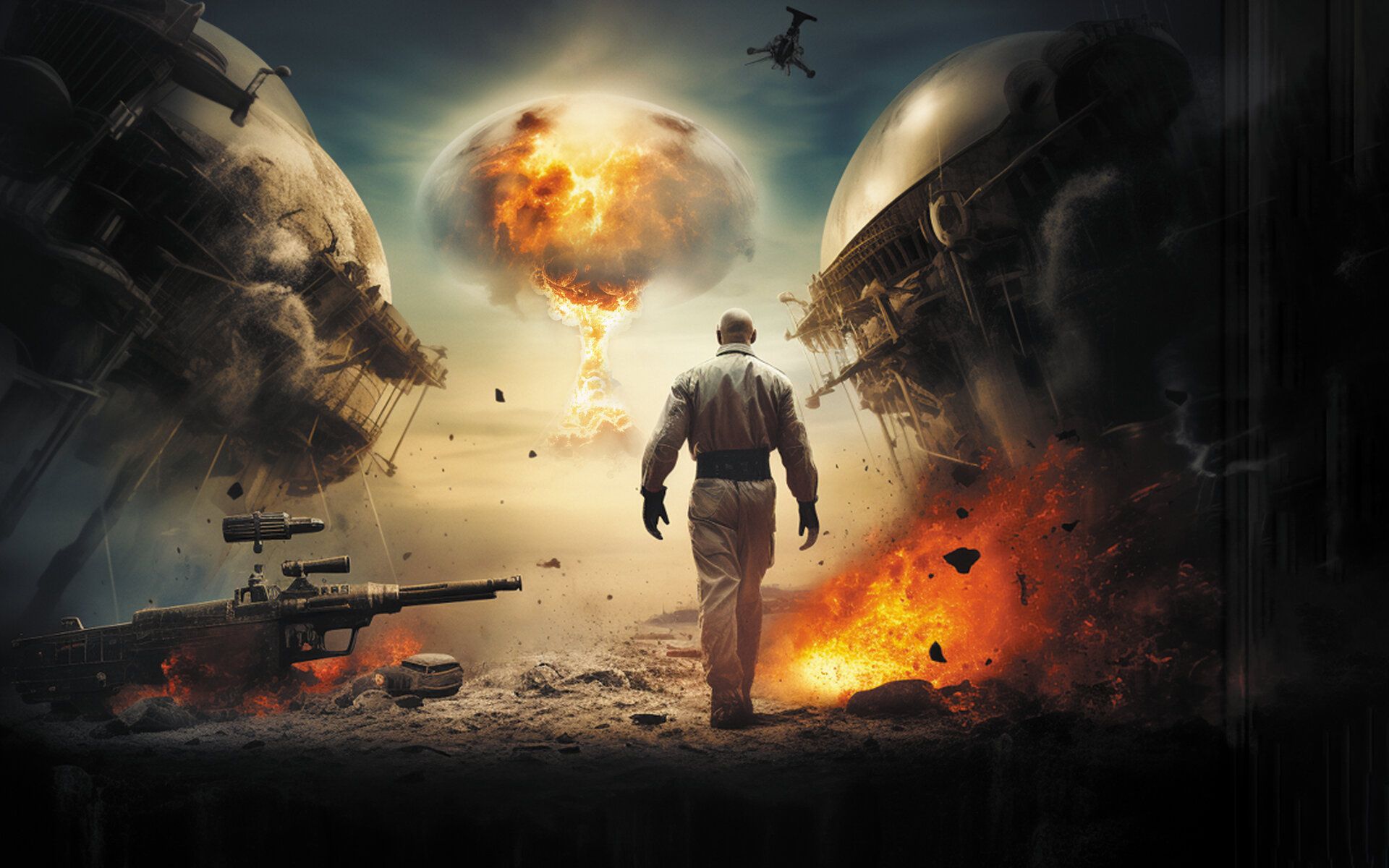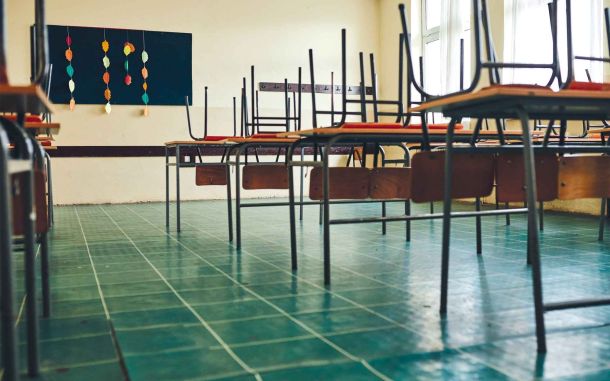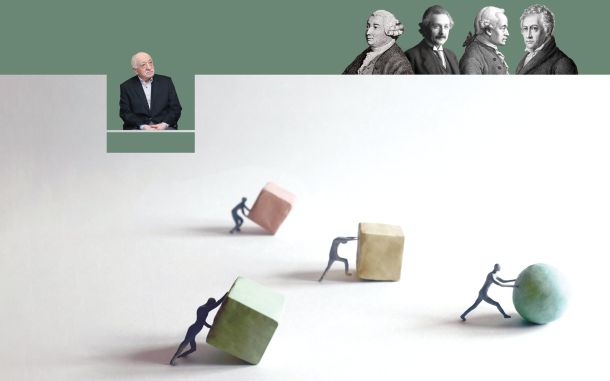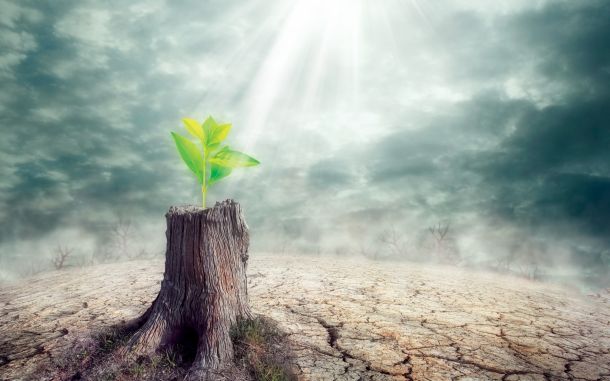Fear and Hope

In This Article
-
With mixed feelings of fear and hope, one can draw parallels between the movies "Oppenheimer" and "Mission Impossible," and real-world concerns about nuclear weapons and rogue AI.
-
It is important to reflect on the ethical responsibilities of those involved in powerful technologies, akin to Oppenheimer's moral dilemma.
-
The Parliament of the World's Religions in 2023, where diverse faiths and perspectives came together in solidarity and friendship, emphasized the importance of defending freedom and human rights amidst the threats posed by authoritarian rulers and advancing technology.
Fear and hope are considered to be two balancing spiritual weights necessary for an ideal faithful life. While hope enables believers not to despair, fear enables them to close doors for selfish, toxic self-pride. Though somewhat different from these definitions, summer 2023 has left me with mixed feelings of “fear” and “hope.” Let me explain how.
Among many good movies that came out on the big screen this year, I was able to watch two: Oppenheimer and Mission Impossible: Dead Reckoning (Part 1). Oppenheimer, directed by Christopher Nolan, shakes viewers during a spine-chilling three hours soaked with fear of the scale of destruction human beings can cause in the world and in their personal lives. For Tom Cruise’s fans, this latest episode of the Mission Impossible franchise is as exciting a thriller as the ones before it, featuring constant knife edge action blended with a balanced sense of humor. Both movies feature humanity’s unending desire to dominate (and possibly destroy) the world via two regretful major threats: either by atomic bombs (Oppenheimer) or artificial intelligence that goes rogue (MI).
Fear of the first threat never completely vanished but has resurfaced in the real world since the invasion of Ukraine by Russia, as use of nuclear weapons keeps coming on and off the table during meetings over the war. Since the introduction of chatbots into our lives towards the end of 2022, there have been mixed reactions to it, ranging from new opportunities that defy imagination to doomsday scenarios, thus the second possible threat, which led Dr. Geoffrey Hinton, the scientist who is considered the father of AI, to quit his job at Google and “in part regret his contribution to the field” [1].
As a matter of fact, Christopher Nolan comments in one interview that although Oppenheimer, the father of the atomic bomb, “never apologized for the bombings of Japan and expressed individual shame about his role in it, all of his actions and policy decisions and attempts to influence policy post 1945 were those of a deeply guilty man very aware of the consequences of his actions.” Nolan says that he speaks to many scientists today and finds many of those in the field of artificial intelligence are troubled by Oppenheimer’s story. They see this as their “Oppenheimer moment” and ask questions like, “what are our responsibilities about the unintended consequences of powerful technology?” [2]. This was the “fear” aspect of the summer. One cannot help but ask, whether we are going through that “dramatic moment” with AI that, in the words of Nolan, is like when Oppenheimer and his team could not completely rule out the possibility of causing a chain reaction that would set fire to the atmosphere—and yet they still pressed the button for the first ever atomic test.
The “hope” aspect was one major event I attended in Chicago, from August 14-18—the Parliament of the World’s Religions. There, I was able to meet with men and women from different traditions, and what makes me hopeful is that, despite their crucial—and at times, oppositional—differences, the faithful who participated showed a unique sense of solidarity and friendship, two qualities the world desperately needs. The spirit of the Parliament was designed to make everybody feel welcomed, even those who did not believe in any established religious traditions and invented their own “path.” During the convention, such a person visited our booth with a warm smile and asked me where I was coming from. I had an interesting conversation with him.
“Well, if you are asking where I am originally from, I was born and raised in Istanbul, Turkey,” I replied to the man.
“Turkey? We have so many words in Hindi from Turkish, like paneer, which means cheese,” the guy said, as his smile broadened even more.
Turkish peynir existing in Hindi as paneer was new information to me. Not necessarily something to be proud about, but it was still surprising to discover.
With a quick glimpse at the books we were displaying he said, “You know, all these religions are nonsense,” out of the blue, now without the smile on his face. “They are not real. They deceive people.”
I was now curious. “What do you believe in?” I asked.
“Insaniyat” he said. This was a word I was familiar from Turkish and Arabic. I didn’t know it existed in Urdu or Hindi, too. What the man meant was, he believed in the human proclivity for ethics and to lead a good life and that humankind didn’t need to be taught about this by an external force as imposed on people by religious prescriptions.
“How do you explain the universe and our lives?” I asked.
“It is all about evolution,” he said.
“How did everything come into being? The universe, the stars…What was there before them? How do you explain the willpower that willed everything to be the way they are?” I couldn’t help myself, asking these questions one after the other.
“Well, I believe in a creating source—something like Allah or Brahma,” the guy said.
“How do you relate yourself to It?” I asked, the words out of my control.
“With yoga, meditation, and that sort of practice,” he said.
“How is that different from ‘religion’? How is that different from the salat of Muslims, or different forms of prayer in Judaism or Christianity?” I asked.
“Well, you can change the form as you like. You don’t have to follow a certain way,” he replied.
This conversation, which may sound strange to some—as well as many such talks on faith, God, and the human condition—were a natural part of the Parliament of the World’s Religions (PoWR). Convening tens of thousands of followers of different faith traditions from around the world—including people like the man above who had many doubts about religions—the PoWR is world’s largest gathering of diverse religious groups. This is the third time it took place in Chicago, with the first two occurring in 1893 (the first ever Parliament) and in 1993, exactly a century after the first one. What could be a better place for all this diversity—and a large crowd—than the gigantic McCormick Place, one of the largest convention centers in the world with a sprawling 2.6 million square feet of exhibition space and where everyone could find a spot for themselves.
My first and only experience with PoWR before this was in Barcelona in 2004. By my upbringing, I am naturally inclined to differences, but what I saw in Barcelona stretched all possible limits of my imagination: the world is too big and humankind has so many tribes. With that experience firmly carved in my long-term memory, I brought along my family so they could reach that awareness early in their life. Chicago 2023 was as rich as Barcelona 2004. According to Religion News Service, over 6,500 people registered for the Parliament. Participants represented 212 spiritual traditions and 95 countries. Who could have thought there were so many spiritual traditions in the world? For Muslims like me, there are Muslims and Christians, who together make up half of the world, and all the rest. Probably what we call “the rest”— Hindus, Buddhists, Jains, etc.—make a similar calculation in their head and don’t concern themselves with the other half. The PoWR makes us all take our heads out of the bubble we imprison ourselves in and realize there is so much we need to explore. I left the Parliament with feelings of hope weighing heavier on my soul’s scale, for however heavy the world seems to be growing, demanding more from our short but precious time and obscuring the truth about this worldly life, humankind will keep searching for a meaningful purpose—hopefully by using their hearts and minds in good harmony.
The 2023 Parliament convened on “the theme of A Call to Conscience: Defending Freedom & Human Rights, calling people of faith and conscience to stand up together in all their diversity and defend freedom and human rights.” Parliament Executive Director, Rev. Stephen Avino, affirmed that the 2023 Parliament Convening aimed to be, “…a place of open minds and open hearts where we can all express the wonder and dignity of our religious and spiritual traditions... But we could not do all this without addressing the foundational issue of our time; the threat to freedom and human rights. We must defend freedom and human rights together and find solutions to the rise of autocracy in our world” [3]. This is an important statement against despotic, cruel rulers with amplified ego, who threaten with fear and have destructive intentions brought on by excessive power, be it through nuclear weapons or advance technology. Such rulers will always be around threatening the safety of our lives. Those in search of peace need to find solutions at all circumstances by adopting a perspective to see how apparently contrasting phenomena coexist and enable each other to reveal themselves. “A Call to Conscience” is reminiscent of Bediuzzaman Said Nursi’s finding of cure in the malady, light in the darkness, and solace in horror (The Twenty-Sixth Gleam, the Eighth Hope).
“Mission Impossible: Dead Reckoning Part 2” is scheduled to be shown in June 2024. So, we have to wait until then to see how our hero Ethan Hunt will be able to find a solution to eliminate rogue AI technology. “Dead Reckoning,” director Christopher McQuarrie has said, “is a navigational term. It means you’re picking a course based solely on your last known position and that becomes quite the metaphor not only for Ethan, but several characters” [4]. It implies to me that with AI, we are headed toward unchartered territories, and perhaps we have to have a firm idea about our last known position.
References
- ‘Godfather of AI’ Geoffrey Hinton quits Google and warns over dangers of misinformation. The Guardian, May 2, 2023.
- “Christopher Nolan Breaks Down ‘Oppenheimer’ With Professor Brian Cox,” Esquire UK. https://www.youtube.com/watch?v=AZaF_JFxBpE
- https://parliamentofreligions.org/parliament/2023-chicago-parliament/
- “Mission: Impossible 7 director explains Dead Reckoning title meaning,” Digital Spy, Nov 23, 2022.









